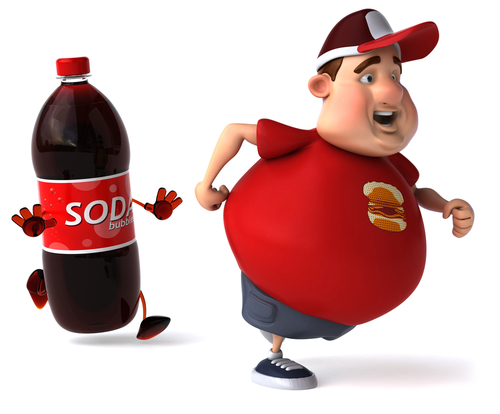Two out of three adults and one out of three children in the
United States are overweight or obese, and the nation spends an estimated $190
billion a year treating obesity-related health conditions. Rising
consumption of sugary drinks has been a major contributor to the obesity
epidemic. A typical 20-ounce soda contains 15 to 18 teaspoons of sugar and
upwards of 240 calories. A 64-ounce fountain cola drink could have up to 700
calories. People who drink this “liquid candy” do not feel as full as if they had
eaten the same calories from solid food and do not compensate by eating
less.
Beverage companies in the US spent roughly $3.2 billion marketing carbonated beverages in 2006, with nearly a half billion dollars of that marketing aimed directly at youth ages 2–17. And each year, youth see hundreds of television ads for sugar-containing drinks. In 2010, for example, preschoolers viewed an average of 213 ads for sugary drinks and energy drinks, while children and teens watched an average of 277 and 406 ads, respectively. Yet the beverage industry aggressively rebuffs suggestions that its products and marketing tactics play any role in the obesity epidemic. Adding to the confusion, beverage industry-funded studies are four to eight times more likely to show a finding favorable to industry than independently-funded studies. This fact sheet assembles key scientific evidence on the link between sugary drink consumption and obesity.
(Source: The Problem: Sugary Drinks Are a Major Contributor to the Obesity Epidemic)

